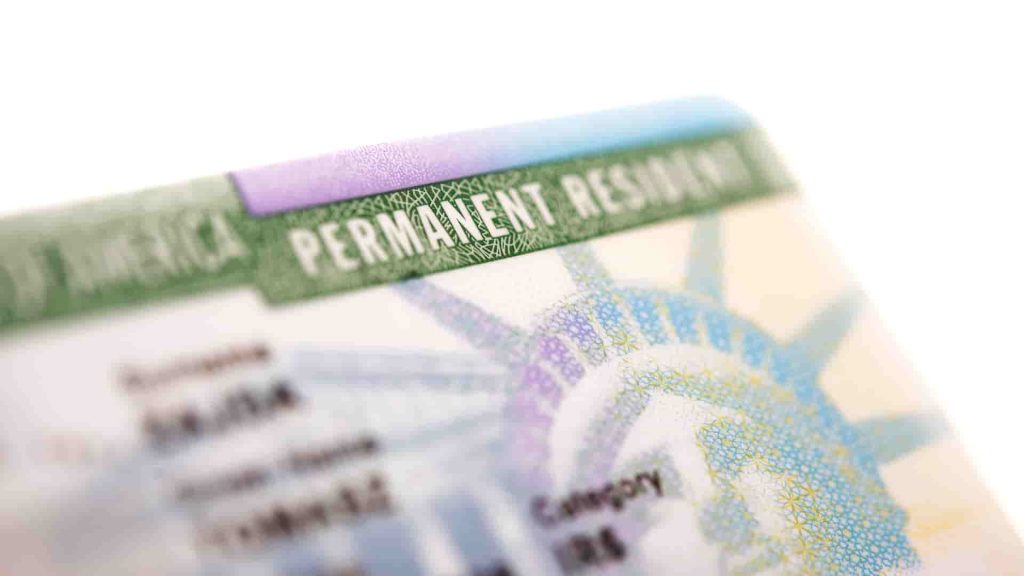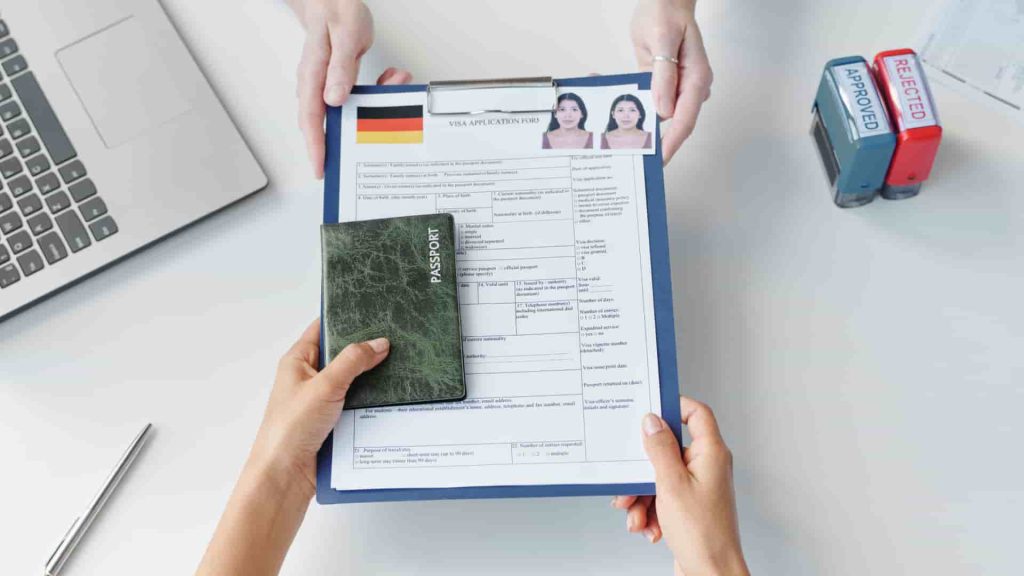
Are you dreaming of swapping your German student visa for permanent residency? It’s a big leap but one that’s absolutely achievable with the right know-how!
Every year, Germany opens its arms to thousands of students worldwide, and for many, this academic journey is just the beginning. But what does it really take to go from lecture halls to a permanent home in the land of poets and thinkers?
We’re diving into five essential secrets that could transform your post-graduation plans from hopeful dreams to reality. From choosing a study program that’s in hot demand to unwrapping the legal intricacies of residency – we’ve got the inside scoop.
So, grab a pretzel, get comfy, and let’s get into the nitty-gritties of making Germany your forever home!
Don’t forget to read: The Free Education System in Germany: What, How, When, Where, and Why?
5 Essential Nitty-Gritties of Turning Your Student Visa into a Permanent Residence
There are several formalities you need to consider when going from being an international student to a permanent working member of the community. We have narrowed down some key points you need to know.
#1 Choosing the Right Study Program
So, you’re set on Germany as your academic destination, but have you considered how your choice of study program can be a game-changer in your quest for permanent residency? Here’s the scoop on making a strategic decision that aligns with Germany’s in-demand skills.
Significance of Aligning with In-Demand Skills
Germany is known for its robust engineering, IT, and healthcare sectors, among others. By choosing a study program within these or other in-demand fields, you’re not only stepping into a realm of vast opportunities but also increasing your attractiveness as a long-term resident. Here’s why:
- Job Market Integration: Graduates in fields with high demand enjoy smoother transitions into the job market, crucial for securing the job necessary to qualify for residency.
- Future-Proofing Careers: Sectors like renewable energy and tech are booming. Aligning your studies with these areas means you’re future-proofing your career and residency prospects.

Impact on Eligibility and Success
Your choice of study program can significantly influence your path to permanent residency. Here’s how:
- Residency Points and Preferences: Some residency programs award points or give preference to graduates in sectors critical to the German economy.
- Employer Sponsorship: In-demand skills increase the likelihood of finding an employer willing to sponsor your stay or support your residency application.
- Long-term Security: Programs that lead to professions with persistent need not only help in the short run for residency but ensure long-term employability in Germany.
Make sure to read: Thriving in a New Career Abroad: My Story of Working in Germany
#2 Understanding the German Job Market
Germany’s job market is characterized by a strong industrial base, a high demand for skilled labor, and an emphasis on innovation and technology. The market favors those with qualifications in engineering, IT, healthcare, and business, among others. However, it’s not just about what you know; it’s also about how you fit into the German work culture, which values precision, efficiency, and punctuality.
Influence on International Graduates
As an international graduate, you bring fresh perspectives and diverse skills to the table. However, navigating job applications, understanding the importance of language proficiency, and adapting to cultural norms can be challenging. Yet, with the right approach, international graduates can and do thrive here.

High Demand Sectors
- Engineering: Especially automotive and mechanical engineering.
- Information Technology: With a constant need for IT professionals, especially in cybersecurity and data science.
- Healthcare: Nurses, doctors, and medical specialists are always in high demand.
Strategies for Integrating into the Local Job Scene
- Language Mastery: Fluency in German significantly increases job prospects and is often a requirement.
- Networking: Engage in internships and networking events to connect with potential employers.
- Understand Visas: Know the types of work visas available and the requirements for each.
Also read: 5 Incredible German Cities to Look Out For: A Journey From Berlin to Frankfurt
#3 Mastering the Language and Culture
Proficiency in German is more than a skill—it’s a key that unlocks various doors, from academic success to social integration and career opportunities. It demonstrates your commitment to adapting to the country and enhances your everyday interactions, making life in Germany more fulfilling and less intimidating.
Understanding Cultural Nuances
German culture is known for its efficiency, punctuality, and directness. Appreciating these values and integrating them into your daily life can significantly impact how you’re perceived professionally and socially. Understanding local customs, holidays, and the general way of life will make you feel more at home and accepted.
Tips for Language Acquisition and Cultural Immersion
- Engage in Language Courses: Take advantage of language courses offered by universities or local institutions.
- Practice Regularly: Immerse yourself in the language by speaking with locals, watching German media, and practicing daily.
- Participate in Local Events: Attend festivals, workshops, and other community events to understand cultural contexts better.
- Find a Language Partner: Pair up with a native speaker who wants to learn your language. It’s a win-win situation!

#4 Navigating Legal Pathways
Transitioning from a student visa to permanent residency in Germany is a structured process governed by specific legal pathways. Understanding these is crucial to strategize your journey effectively.
Legal Pathways Available
- Settlement Permit (Niederlassungserlaubnis): After completing your studies, if you’ve worked in Germany for two years and have paid into the German pension fund, you may be eligible for this permit. It’s a direct path to permanent residency.
- EU Blue Card: A popular option for graduates with a job offer in their field of study, especially if it meets certain salary requirements. Holders can apply for permanent residency after 33 months, or just 21 months with B1 language proficiency.
We think you’ll love this: What Did Renting My First Apartment in Germany Look Like
Conditions and Timelines
- Employment: You must secure employment relevant to your degree to qualify for most residency permits.
- Financial Stability: Demonstrate financial independence without needing public funds.
- Language Proficiency: Varies with different permits, but at least a B1 level is often expected.
- Integration Course Completion: Sometimes required, proving you understand German societal and legal systems.
Essential Documentation
- Passport and Current Visa Information
- Degree Certificate and Academic Records
- Employment Contract and Salary Details
- Proof of German Language Proficiency
- Evidence of Health Insurance and Accommodation

#5 Financial Stability and Planning
Achieving financial stability is a cornerstone of successfully transitioning from a student visa to permanent residency in Germany. It’s about more than just meeting daily needs; it’s about demonstrating your ability to sustain a long-term, stable life in a new country.
Role of Financial Planning in the Transition Process
Financial planning ensures you’re prepared for all aspects of life in Germany, from covering living expenses to handling unexpected emergencies. It also proves to the authorities that you are economically independent and won’t rely on public funds, a crucial criterion for most residency permits.
Requirements for Financial Stability
- Regular Income: Whether from employment or other verifiable sources, a regular income is necessary to show financial stability.
- Savings: Adequate savings to cover any gaps in employment or unexpected expenses.
- Health Insurance: Mandatory coverage is essential, including provisions for long-term care.
We think you’ll love this: What Did Renting My First Apartment in Germany Look Like
Tips for Managing Finances as an International Student
- Budget Wisely: Keep track of your expenses and plan for both fixed costs (like rent and insurance) and variable costs (like food and entertainment).
- Seek Scholarships and Part-Time Work: Look for opportunities to reduce education costs and earn while you learn, but be mindful of the legal restrictions on work hours for students.
- Understand Banking in Germany: Familiarize yourself with banking services, fees, and efficient ways to manage transactions.
- Plan for the Future: Start saving for after graduation, considering potential costs for job hunting, moving, or transitioning between visas.

Sealing Your Future in Germany: From Student Visa to Permanent Residency
As you journey from a student visa towards permanent residency in Germany, remember that each step is a building block towards your future.
By choosing the right study program, understanding the job market, mastering the language and culture, navigating legal pathways, and ensuring financial stability, you’re not just preparing for a life in Germany—you’re investing in a future filled with potential.
Will you choose a field that catapults you into the heart of German industry? Can you adapt and thrive in a culture rich with history and precision? Are you ready to navigate the complexities of legal procedures and plan financially for a stable life?
Your answers lie in the journey ahead. So welcome aboard the international student train!




